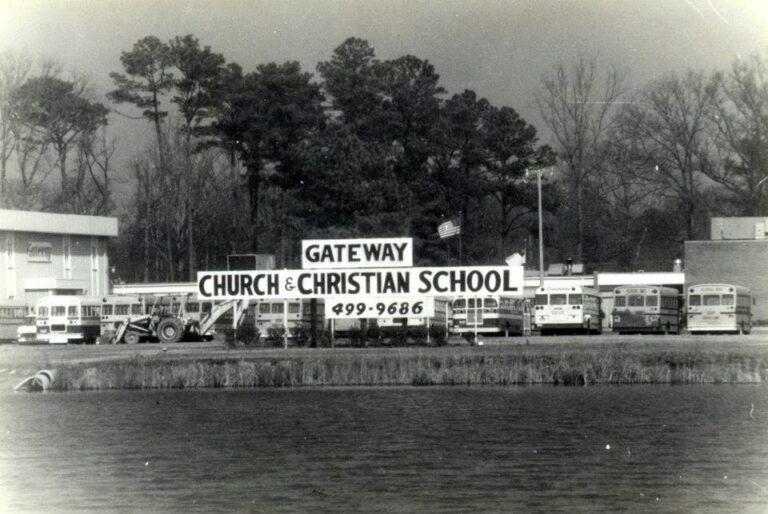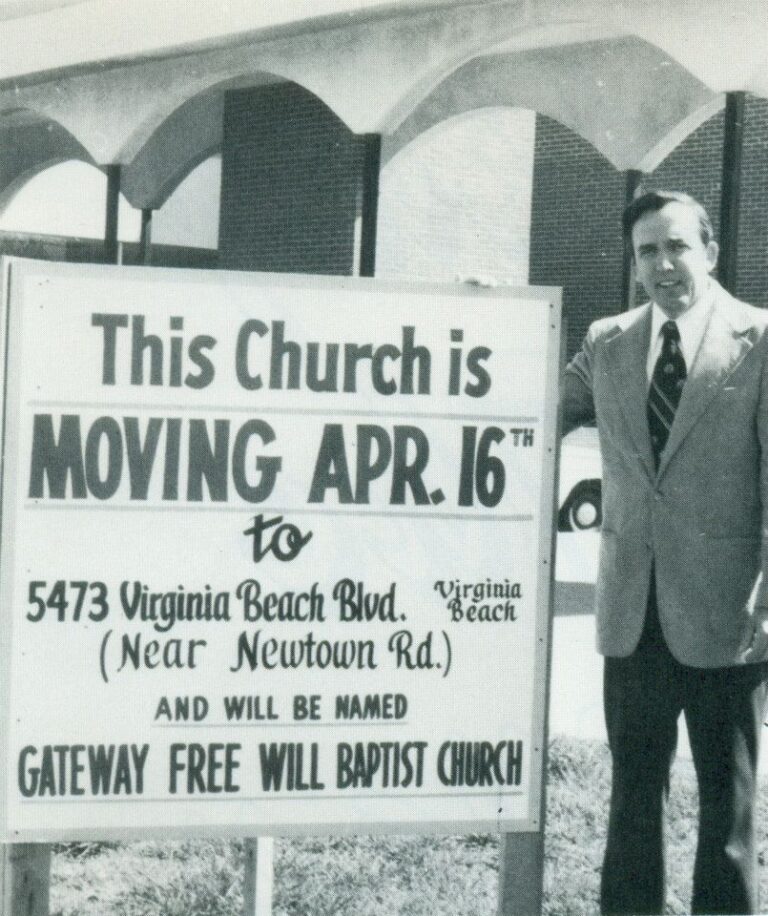About Our Private Christian School in Virginia Beach, VA
Our Mission, History, and More
As a fully accredited private Christian school in Virginia Beach, VA, we are dedicated to ensuring that all our students receive advanced study diplomas, preparing them for success in their future endeavors. It is the mission of Gateway Christian Academy to train students spiritually, academically, socially, and physically to be a positive impact in the world for Christ.
We appreciate the opportunity to partner with you in supporting the mission of GCA and the success of your child.
History
Gateway Christian Academy (GCA) began in 1966 as American Christian School under the leadership of Pastor Dale Burden. At the time, the founding church was Fairmount Park Free Will Baptist Church. In the late 1970s, both the church and school relocated to Virginia Beach, and the ministry adopted the name “Gateway.”
The 1960s were a time of political and spiritual unrest in America. In Virginia, public schools even closed temporarily due to racial struggles following the newly adopted civil rights laws. Many private schools emerged during this time for the wrong reasons—primarily to avoid forced racial integration. However, this was not the case with Gateway. From the beginning, it was established to represent the kingdom of God. Pastor Burden’s vision was simple: he wanted a place where his children—and many others—could continue learning God’s Word and praying freely. He desired a school where Jesus remained the focus of Christmas and Easter programs and where students were taught to boldly proclaim Him as the Son of God.
Today, Gateway Christian Academy continues to proclaim the gospel of Jesus Christ. Thousands of students have walked these halls and have gone on to make a positive impact for Christ in nearly every walk of life. Some have pursued full-time ministry, while others have become leaders in education, healthcare, business, technology, public service, and countless other fields. No matter their path, they continue to faithfully serve and shine the light of Christ in their workplaces, communities, and beyond.



Statement of Faith
Gateway Christian Academy holds firmly to a biblical worldview and is committed to shaping each student’s life according to God’s truth. We believe in one God, eternally existing in three persons: the Father, the Son, and the Holy Spirit. The Holy Scriptures are verbally inspired by God and serve as our only infallible rule of faith and practice. Jesus Christ, the Son of God, was born of a virgin, lived a sinless life, and sacrificially died, shedding His blood for our sins. He rose bodily from the dead for our justification and will return visibly and in glory for His Bride, the Church.
We believe in the necessity of the new birth for all mankind—a work of grace accomplished by the Holy Spirit and conditioned upon personal faith in Jesus Christ as Lord and Savior. All who are born into God’s family through faith in Christ receive eternal life, while those who do not place their faith in Christ remain in spiritual death and face eternal separation from God. The Holy Spirit dwells in every believer, filling us with divine power and enabling us to walk in holiness and obedience to God’s will as revealed in the Gospel. Through His presence, we are transformed and empowered to live lives that reflect Christ’s love and grace.
We teach from a biblical worldview, emphasizing the redemptive work of Christ and applying God’s truth to every aspect of life. We believe in the local church—a community of born-again believers who come together to preach the Gospel, administer the ordinances, and encourage one another in their walk with Christ. We also affirm the universal church, made up of all believers from all ages and places, united in the body of Christ and called to live a life of faith and obedience to God’s Word.
At GCA, families join us in supporting these beliefs, walking alongside us as partners in shaping each child’s life to grow in faith and follow God’s will.
Foundations
Foundations in a school setting refer to the essential core principles, values, beliefs, and practices that guide how the school operates, teaches, and nurtures its students. Foundations shape the school’s mission, vision, educational approach, spiritual focus, and community culture. They are the starting point for curriculum development, classroom expectations, teacher behavior, and student growth—providing a consistent framework that supports every part of the learning experience.
Integrity
Do what is right simply because it is right.
Proverbs 4:26-27
Respect
Genuinely value others and their property.
Matthew 7:12
Safety
Look out for the well-being of yourself and those around you.
Philippians 2:3-4
Responsibility
Be accountable to yourself and others for what you can control
Galatians 6:4-5
Humility
Follow Christ’s example of self-denial by being a servant to others
Philippians 2:5-7